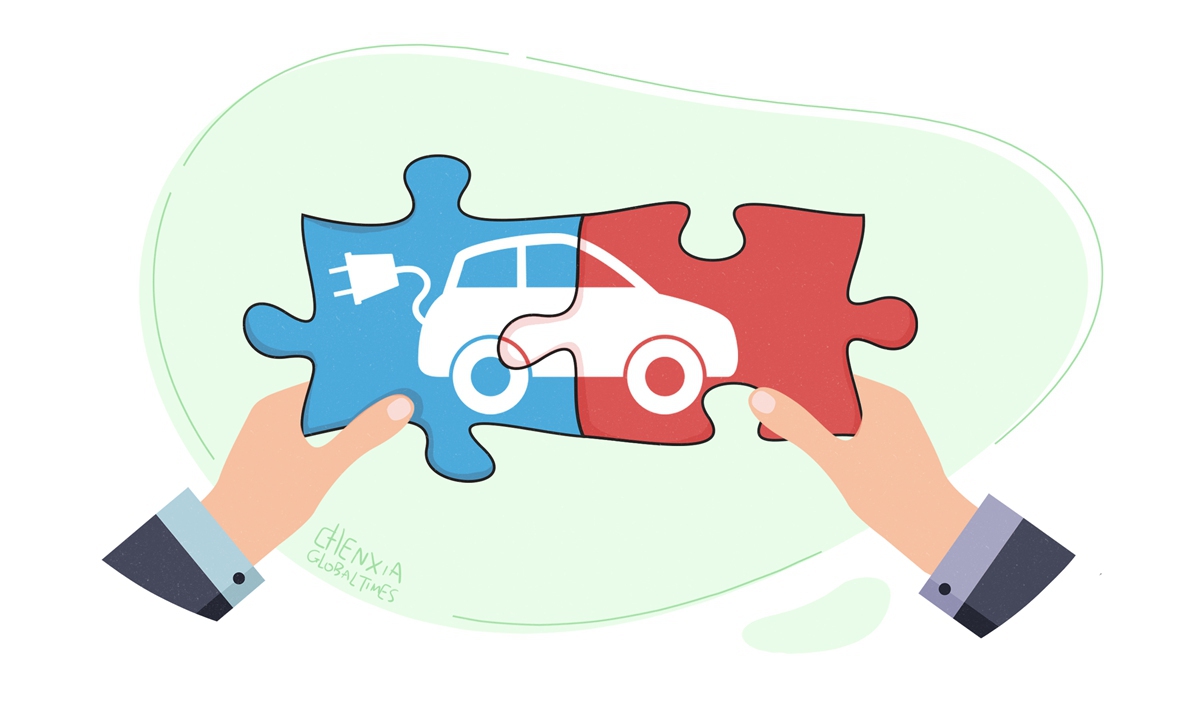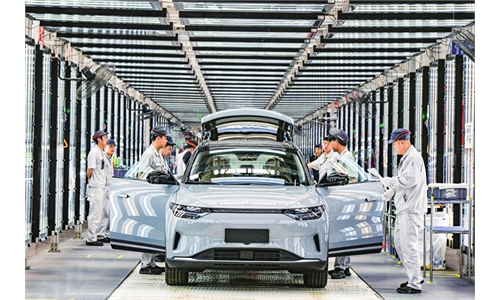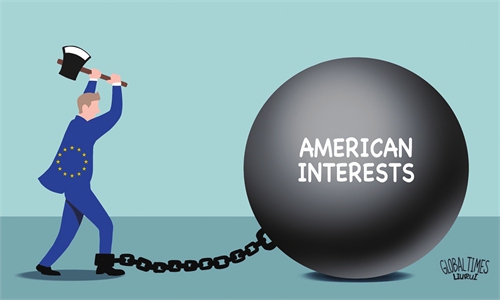Whether to follow the US' tariff policies tests Europe's strategic autonomy: Global Times editorial

Illustration: Chen Xia/Global Times
On May 21, while attending an event in Frankfurt, Germany, US Treasury Secretary Janet Yellen claimed that "the US and Europe need to respond to China's industrial overcapacity in a strategic and united way." She openly urged the EU to intervene urgently to "dampen" China's growing green technology exports, including solar panels and wind turbines. Given Germany's staunch opposition to raising tariffs on electric vehicles related to China, it's evident that this speech was meticulously crafted in both its location and wording.
It is clear that Yellen's aim is to provoke trade friction between the EU and China and to bind the EU tightly to the US' strategic agenda. In recent days, Yellen has frequently called on Europe to address "China's industrial overcapacity," which indirectly demonstrates the US' weakness and anxiety in suppressing China's new energy industry. Therefore, the US is in such urgency to bring Europe on board, hoping that Europe will "charge into battle" for it. This is essentially political coercion of the EU on economic issues.
The EU currently faces choices: whether to follow the US in taking unified actions against China or to maintain the EU's strategic autonomy. Should it block China's EV exports at all cost, or protect the interests of its own enterprises and maintain the globalized framework? Additionally, Europe is a pioneer in green economic development, setting an example for the world. Whether it follows the US in building green trade barriers will test its commitment to its green development agenda.
At present, Europe's overall direction still largely maintains strategic autonomy and political sobriety. According to the South China Morning Post, European Commission President Ursula von der Leyen indicated that the EU would take "a different approach" from that of the US. German Chancellor Olaf Scholz has noted half of the EV imports from China were produced by Western manufacturers. Additionally, BMW chief Oliver Zipse previously stated that the only purpose of raising import taxes is to protect an industry, but "we don't think that our industry needs protection."
And a more fundamental reason is that the US cannot succeed in suppressing China's new energy industry. The US politicizes economic and trade issues through Section 301, which is not recognized by the international community, and often imposes tariff penalties on other countries. Its behavior not only seriously violates its tariff commitments within the WTO but is also typical trade protectionist behavior that disrupts the normal order of the international market. Many countries, including European countries, have been severely affected by it. Now, the US is once again wielding the tariff stick toward an emerging industry with unlimited potential, and the outcome is self-evident.
Furthermore, Europe should recognize that China's industrial capacity and manufacturing abilities have gradually developed during its reform and opening-up, including the economic spillover effects of opening its market to foreign investment and joint ventures. Throughout this process, many European companies have also benefited from it. The rapid development of China's new energy industry today aligns with the global trend of energy conservation and emission reduction and is a significant contribution to global green energy efforts. From the perspective of achieving global energy conservation and emission reduction, any suppression or restriction of the new energy industry is untimely and a counterproductive move against the current trend. We believe Europe has a full understanding of this.
In fact, aside from the perspective of some in the US, China's development and opening-up bring opportunities, not risks, to Europe and the world. The spirit of free trade is the cornerstone of the EU and the source of its economic prosperity. Protectionism will not solve EU's problems; it hinders development and sacrifices the future. Many wise minds within the EU are well aware of this fact. China and the EU are each other's second-largest trading partners and are both significant forces in building an open world economy. Washington often mentions its "European friends." It is hoped that they will respect the EU's vital interests and also uphold the right of the EU and other countries to develop independently and autonomously.


